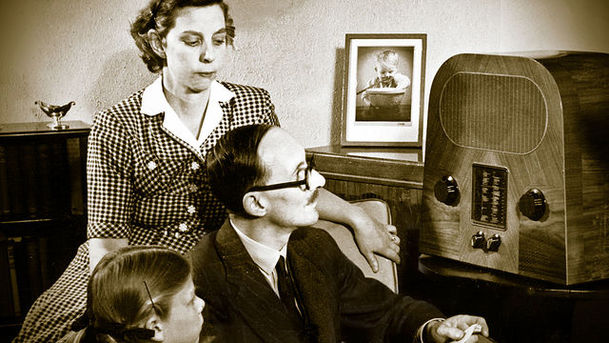Hits of the Blitz

Paul Morley tries to discover what people were really listening to during the Blitz of WWII, and finds that there is much more to it than 'We'll Meet Again'. We all think we know what people were dancing and listening to in their homes, in shelters and in night spots, but Morley hears hit tunes of the time which might come as a surprise to many of us. Morley goes in search of what these hit tunes tell us about how people were really feeling and coping during those difficult days. If you had eavesdropped on a living room in 1940, you were more likely to have caught a burst of 'When You Wish Upon A Star' from Pinocchio than 'White Cliffs of Dover'. He speaks to Tony Benn about his memories of popular music during the Blitz as he experienced it, and what other members of the public were really humming during this time of crisis. He speaks to social historian Juliet Gardiner, musicologist Tim Healey and music therapist Stewart Wood about the mood of the time and why the music that evokes the war to us is often not the music that was actually being listened to. Morley goes in search of what people were singing and dancing to in the Cafe de Paris in London's West End on the night that it was bombed in March 1940, and finds that it was not the American Lindy Hop swing that many of us picture of when we think of nightlife during the Blitz. In fact, it was a world where people still did the foxtrot and the waltz to numbers such as 'Oh Johnny Oh,' played by the band. Producer: Victoria Shepherd A Juniper production for BBC Radio 4.